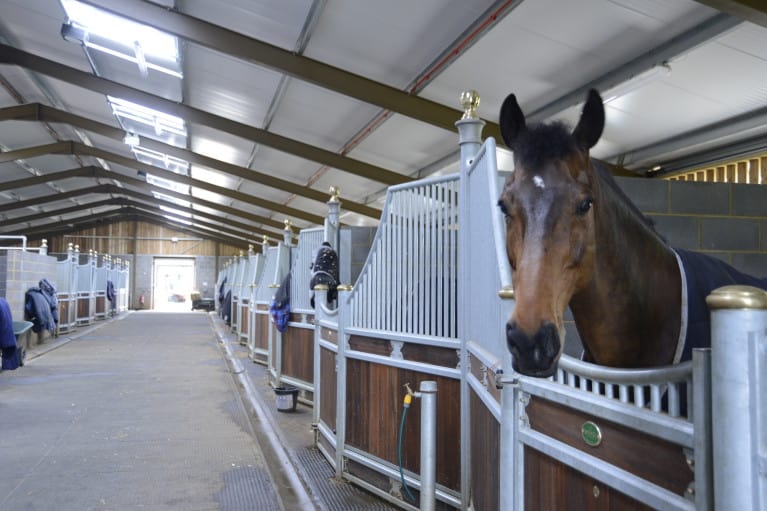Caring for senior horses requires a thoughtful approach, especially when it comes to maintaining their health through a strategic senior horse deworming plan. As horses age, their immune systems may weaken, making them more susceptible to parasites and other health issues. A well-structured deworming plan is essential to keep them healthy and thriving. In this article, we’ll explore various aspects of crafting an effective deworming strategy for senior horses, ensuring their wellbeing and longevity.

Understanding the Importance of Deworming
Deworming is a crucial part of equine health management. Parasites can cause significant health issues, including weight loss, colic, and anemia. For senior horses, these problems can be even more pronounced due to their potentially weakened immune systems. A tailored senior horse deworming plan is vital to mitigate these risks and promote overall health.
Recognizing Symptoms of Parasite Infestation
Common Signs in Senior Horses
Senior horses might show different signs of parasitic infection compared to younger horses. Look out for symptoms such as dull coat, weight loss, lethargy, and digestive disturbances. Regular monitoring and prompt response to these signs are essential components of a senior horse deworming plan.
Designing a Tailored Deworming Schedule
Consulting with a Veterinarian
Every horse is unique, and their deworming needs can vary. It’s important to work closely with a veterinarian to create a senior horse deworming plan that suits your horse’s specific health profile. Regular fecal egg counts can help determine the level of infestation and guide the frequency of deworming.
Considering Environmental Factors
The environment where your horse lives plays a significant role in their parasite exposure. Horses in pasture have different deworming needs than those in stables. Understanding these dynamics helps in crafting a strategic deworming plan. For more insights, visit this guide on caring for senior horses.
Choosing the Right Deworming Products
There are various deworming products available, each targeting different types of parasites. Rotating dewormers and using broad-spectrum products are common practices. However, resistance to certain dewormers can develop, so it’s crucial to choose products wisely as part of your senior horse deworming plan.
Understanding Dewormer Resistance
Overuse or incorrect use of dewormers can lead to resistance, where parasites are no longer affected by the treatment. To avoid this, ensure that your deworming strategy is based on veterinary advice and fecal testing results.
Integrating Nutrition and Deworming
Nutrition plays a critical role in maintaining a senior horse’s health and resilience against parasites. A balanced diet can enhance their immune system, making them less susceptible to infestations. Consider integrating supplements that support gut health as part of your senior horse deworming plan.
Monitoring and Adjusting the Deworming Plan
Regular monitoring of your horse’s health and parasite load is essential. Adjustments to the deworming schedule might be necessary based on seasonal changes, health status, and fecal egg count results. Stay proactive and responsive to ensure the effectiveness of your senior horse deworming plan.
Preventive Measures Beyond Deworming
Deworming is just one aspect of parasite control. Implementing pasture management practices, such as rotating grazing areas and removing manure, can significantly reduce parasite exposure. These measures should be part of a comprehensive senior horse deworming plan.
Implementing Pasture Management
Effective pasture management reduces the risk of parasite infestation. Regularly clean your horses living environment and consider integrating pasture rotation to minimize exposure. For additional insights, check out our article on best bedding for senior horses.
Common Deworming Mistakes to Avoid
Avoiding common deworming mistakes can enhance the effectiveness of your plan. Ensure correct dosing, adhere to the schedule, and avoid unnecessary overuse of dewormers. These steps are vital for a successful senior horse deworming plan.
Dosing Errors and Their Implications
Incorrect dosing can lead to ineffective treatment and potential resistance development. Always follow the veterinarian’s instructions and use accurate weight measurements to determine the correct dosage for your horse.
Conclusion: A Holistic Approach to Senior Horse Care
Maintaining a healthy senior horse involves more than just deworming. A holistic approach, including proper nutrition, regular veterinary check-ups, and environmental management, ensures their overall well-being. Crafting a comprehensive senior horse deworming plan is a significant step towards achieving this goal.

Frequently Asked Questions (FAQ)
How often should I deworm my senior horse?
The frequency of deworming depends on several factors, including your horse’s health, environment, and fecal egg count results. Consult with a veterinarian for a tailored schedule.
Can I use the same dewormer for all parasites?
No, different dewormers target different parasites. Rotating dewormers and using broad-spectrum products are common practices. Consult with your veterinarian for guidance.
What are some signs of resistance to dewormers?
If you notice a lack of improvement in your horse’s health after deworming, it could indicate resistance. Regular fecal egg counts can help monitor effectiveness and guide treatment adjustments.
This article contains affiliate links. We may earn a commission at no extra cost to you.
